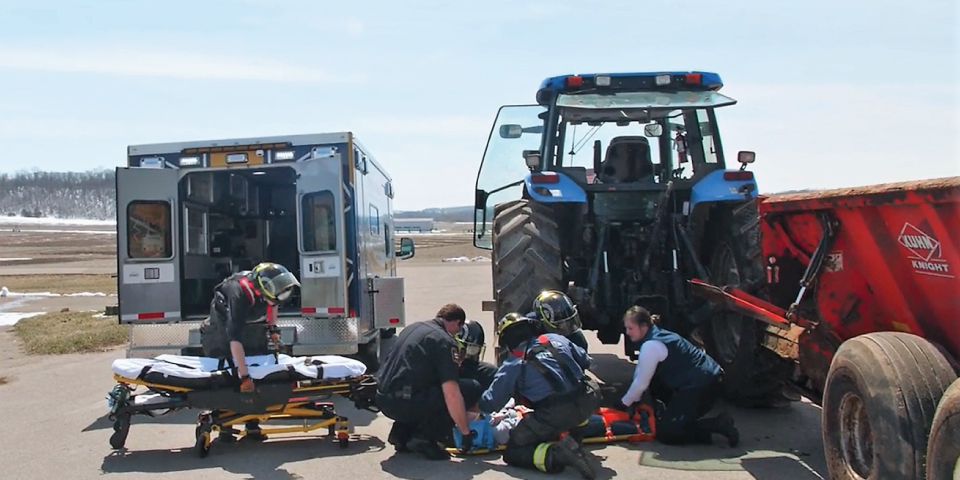A University of Wisconsin grant will help the National Farm Medicine (NFMC) double the number of rural Wisconsin fire and EMS departments that receive training in order to better plan for and prevent agricultural emergencies.
The UW Institute for Clinical and Translational Research (ICTR) awarded NFMC Director Casper Bendixsen, Ph.D., an Evidence to Implementation (E2I) pilot award of $75,000 as part of its efforts to advance safety in agricultural work.
NFMC developed the Rural Firefighters Delivering Agriculture Safety and Health (RF-DASH) program in 2016 to conduct training on agricultural emergencies, including mapping of local farms, analyzing agricultural hazards, performing first aid on farms, and approaching the farm community. The program has certified 78 fire and EMS trainers across 10 states and five Canadian provinces, including 30 Wisconsin fire and EMS departments under principal investigator Dr. Bendixsen’s direction.
The E2I award will allow RF-DASH to have trainees in at least 60 Wisconsin departments, doubling the program's reach. At least two trainees will be engaged in departments that are predominantly of the Plain community, which can include Amish and Mennonite people, among others.
“The RF-DASH program is an example of ICTR’s efforts to not only improve the health and wellbeing of rural community residents but also to do so with intense community involvement,” Dr. Bendixsen said. “From the ground up, farmers and firefighters have worked alongside researchers to get us to this point. The RF-DASH team is grateful for ICTR’s support to further implement the program in more Wisconsin communities.”
The award also will support improvement of the program’s materials and websites www.rfdash.org, www.saferfarm.org, and www.farmmapper.org as well as refresher courses for previous trainees with updated information based on new risk assessment and reduction guidelines. The award will help the program to develop a sustainable payment model for trainings, refresher courses, and other resources that will be affordable to rural fire departments while also generating revenue to sustain the program in the long term.

